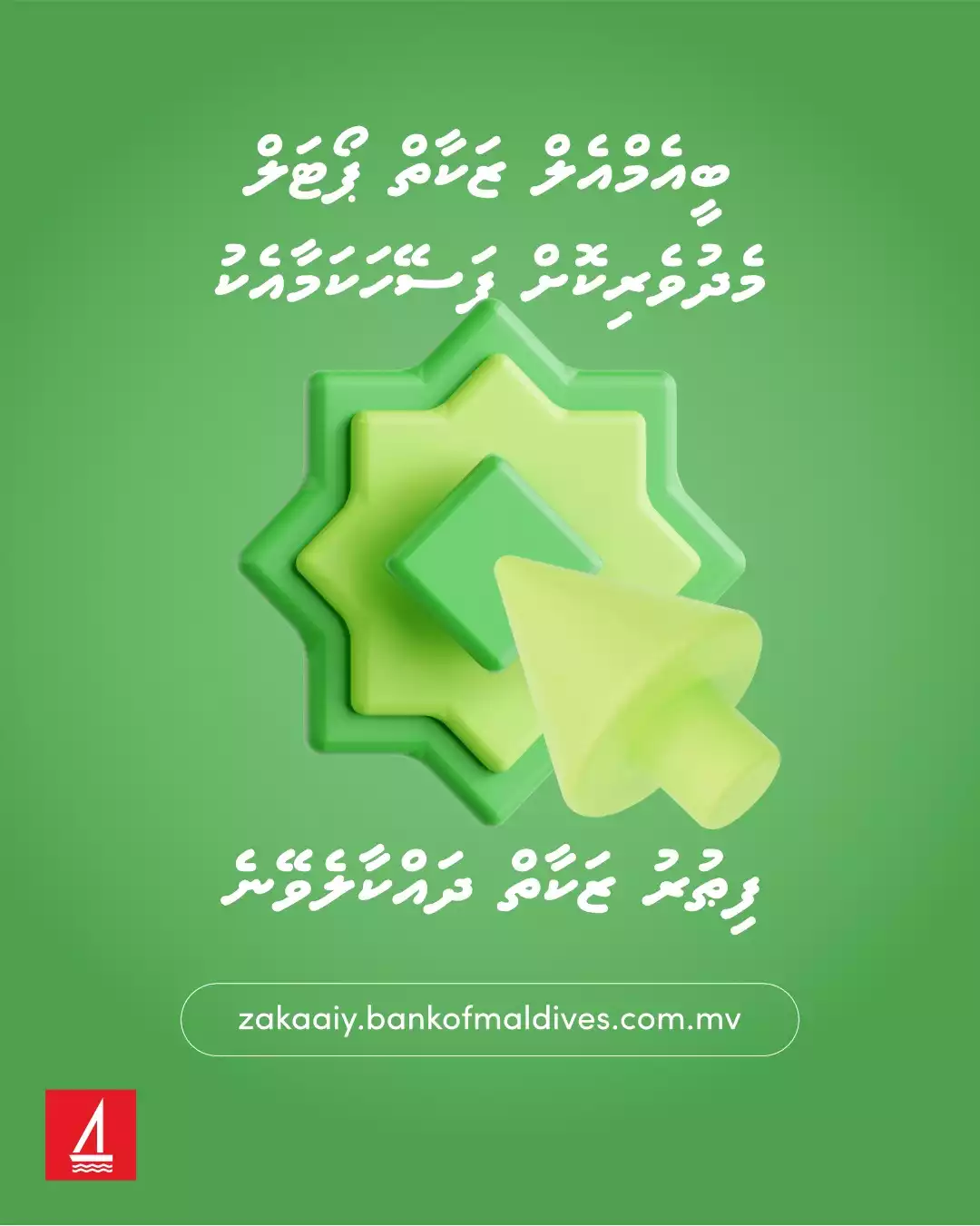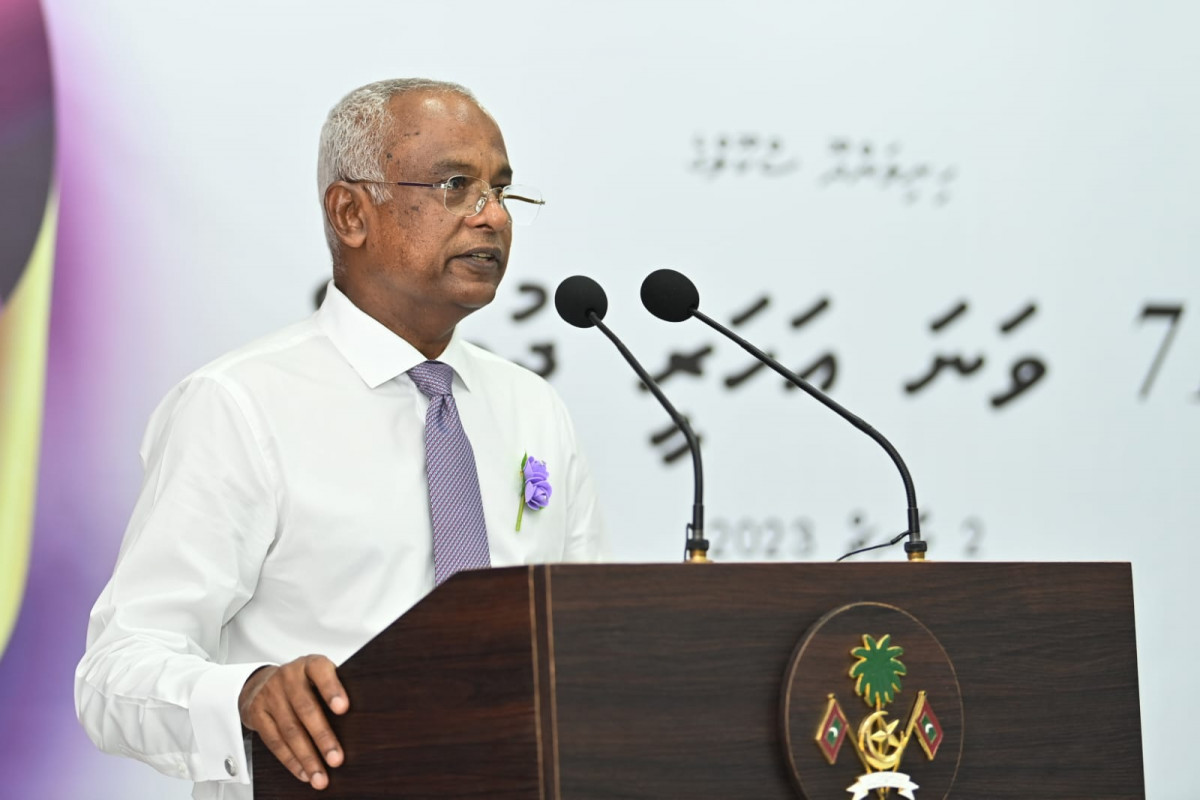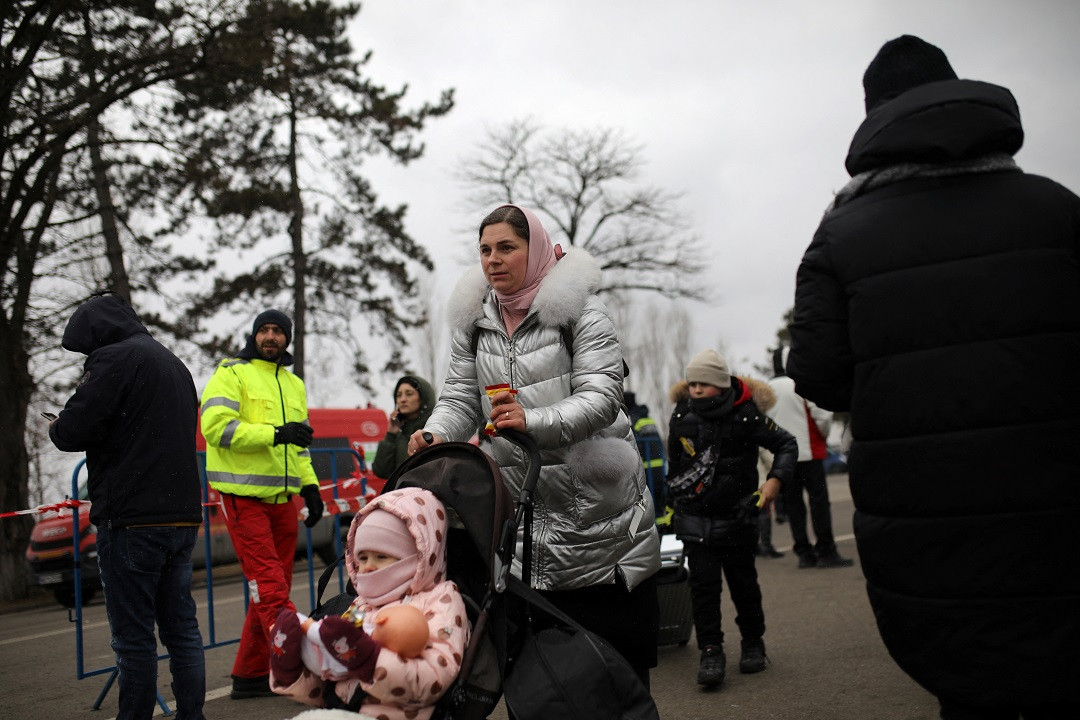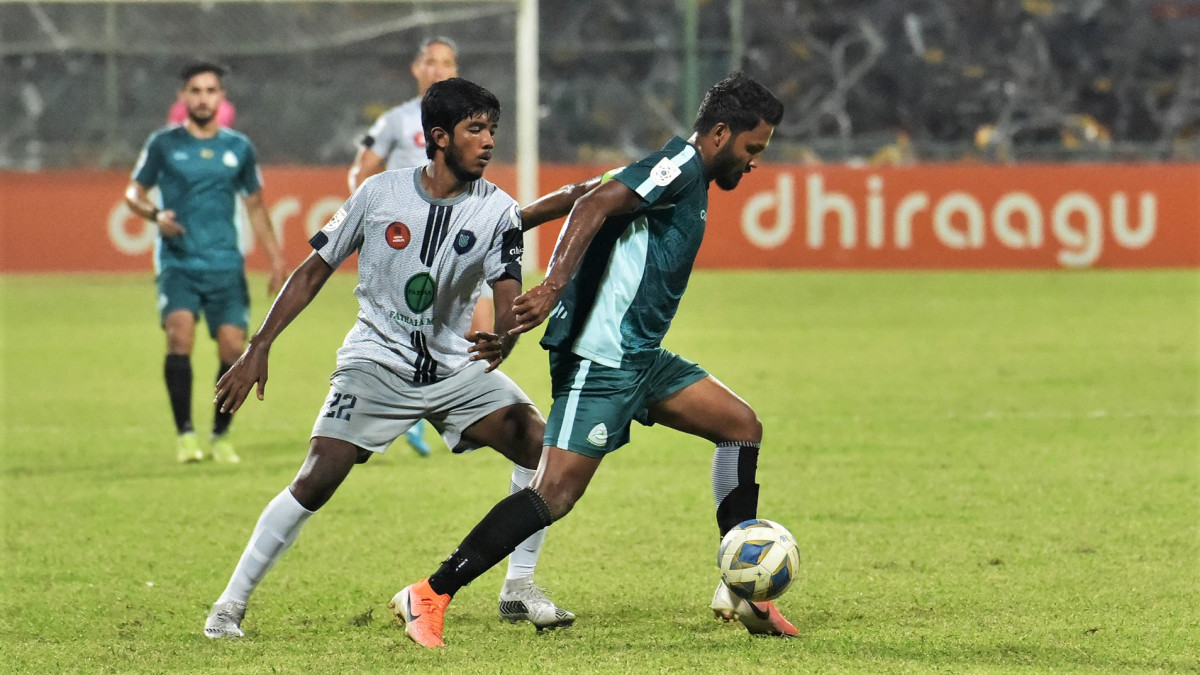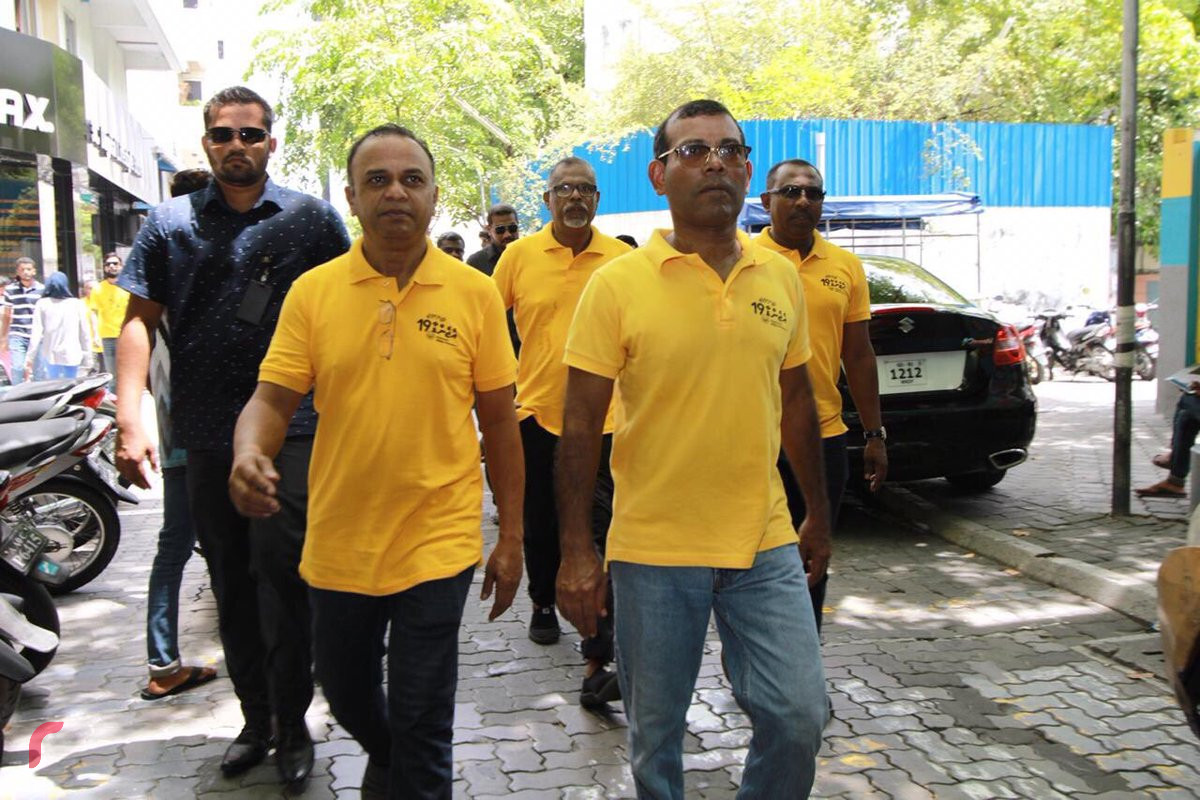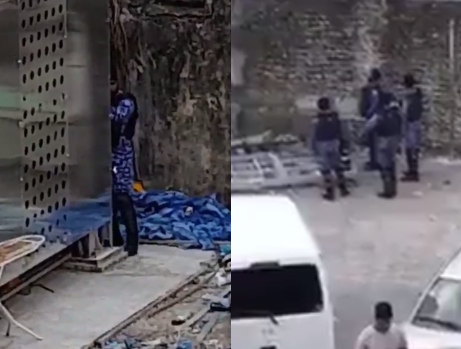MDP National Congress member summoned by police over taking a photo
Hussain was questioned by police for allegedly obstructing police duties by taking and refusing to delete a photograph of officers at a scene

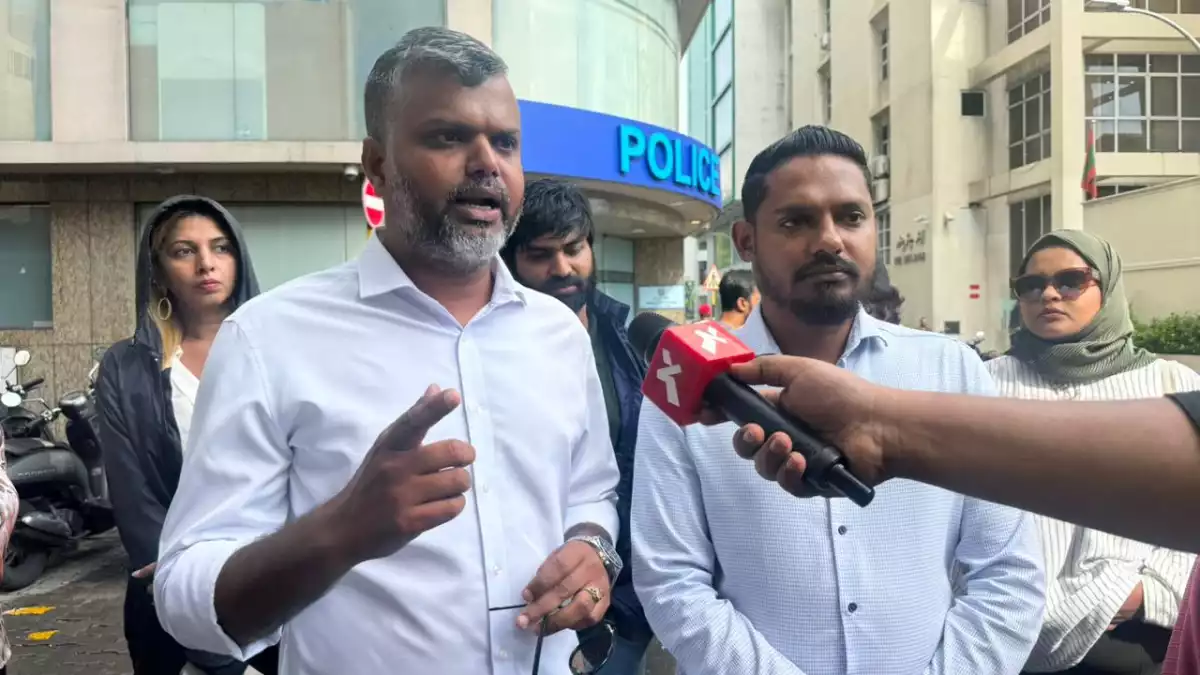
Hussain speaking to RaajjeTV, after giving a statement to the police at their Galolhu station
Hussain Hassan, a National Congress member of the main opposition Maldivian Democratic Party (MDP), was summoned and questioned by the Maldives Police Service (MPS) on Monday over an incident involving the capture of a photo near the Peetral region in the capital, Malé City.
He was called to Galolhu Police Station at 1pm in relation to filming or photographing what appeared to be an ongoing police operation. According to his legal counsel, Ibrahim Shiyam, Hussain was accused of obstructing police duties, allegedly by taking a photograph of officers at the scene, and of disobeying a police order by refusing to delete the image when instructed.
The legal team has raised concerns over the legitimacy of the accusations. The area in question was not cordoned off, and according to Hussain’s account, it was late at night, and the individuals he photographed were in plain clothes. The identification shown by those who confronted him was reportedly unclear, making it impossible for him to confirm whether they were indeed law enforcement officers.
The situation, as described by Hussain and his lawyer, suggests that the core of the alleged offense was the refusal to delete a photo taken in a public space, an action that, under normal circumstances, is not considered unlawful. This raises troubling questions about the boundaries of lawful public observation and the apparent attempt to control documentation of police activity.
Though Hussain has since been released by the court, the police have indicated that the investigation remains ongoing. The MDP member has strongly criticized the case as politically motivated, suggesting that the summons was part of a broader campaign of intimidation targeting opposition figures, particularly those actively engaged in organizing and leading protests.
With Hussain playing a visible role in preparations for MDP’s planned rally on November 17, the timing and nature of the police action have further fueled speculation that state institutions are being used to suppress political dissent. Critics argue that such actions undermine public confidence in law enforcement and erode democratic norms surrounding civil liberties, particularly the right to observe and document public officials.
The case adds to growing concerns over the government's approach to political opposition and freedom of expression in the lead-up to the opposition’s major public demonstration.
